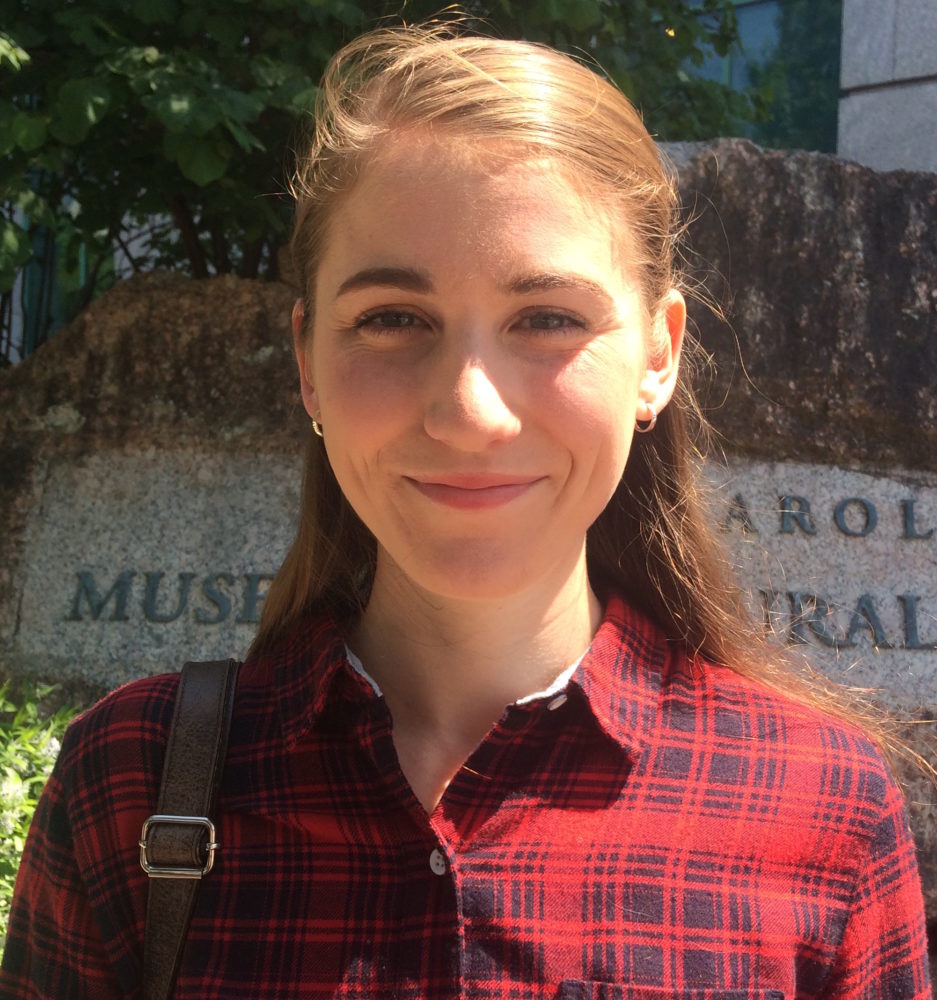
Shannon Hayes ‘18
Major: Modern Languages (French and Mandarin), and Classics & Archaeology
Minor: Asian and Pacific Studies
Next Step: Ph.D. at NYU’s Institute for the Study of the Ancient World
After growing up between Wyoming, California, and North Carolina, Shannon Hayes eagerly joined the LMU community and started her educational journey. First focusing on modern languages, specifically French and Mandarin, Hayes ended up discovering her true passion: archaeology. It was Professor Caroline Sauvage’s “Near Eastern Archaeology” class her freshman year that got her hooked on interpreting human history.
“I had always loved history, but never really considered the work of excavation and the study of data from the distant past––how the histories are really written. I loved the mystery of it,” says Hayes. “Anthropology, and its sub-discipline archaeology, has been called ‘the most scientific of the humanities, and the most humanistic of the sciences.’ This is why it appeals to me so much; it is truly interdisciplinary.”
Hayes actively pursued, engaged, and researched this field of study while at LMU. The Classics and Archaeology department funded her participation in the Yangguanzhai Archaeology Field School in Xi’an, China in 2016, and the Western Mongolia Archaeology Project in Uvs Province, Mongolia in 2017. She was as a teacher’s assistant in Professor John Dionisio’s Honors Research and Exhibition class and for Professor Sauvage’s Archaeological Methods and Techniques class. She also spent three years as a Rains Research Assistant.
Hayes credits her Jesuit education and liberal arts education for teaching her many invaluable skills. She is appreciative of the way it teaches “you not what to think, but how to think”. This is especially important in the field of archaeology, which includes interpreting human history through many unique lenses. She also credits her mentors, Professor Sauvage and Father William Fulco, for guiding her over the years in her studies.
Currently, Hayes is most interested in studying early interactions between sedentary Chinese communities and nomads of the Inner Asian steppe, and the respective life-ways of these groups. She plans to use bioarchaeology, which is analyzing human remains from archaeological contexts to learn more about the health of past populations.
Hayes applied to two Ph.D programs: NYU’s Institute for the Study of the Ancient World (ISAW) and the University of Pittsburgh’s Department of Anthropology. She also applied to four MA and MSc programs in osteoarchaeology and biological anthropology at Exeter and Sheffield in the UK, and Fairbanks and Anchorage in Alaska. She ultimately decided to attend NYU’s Institute for the Study of the Ancient World.
“I chose the PhD program at NYU-ISAW because of its interdisciplinary approach to the study of the ancient world, its collaborative environment, its rigor, and its visiting research scholars program. The abundance of educational, cultural, and museum resources in New York City was also a major draw,” says Hayes.
Inspired by her mentors, Hayes looks forward to becoming a professor one day. She is excited to research Inner Asia and eventually teach her students about the importance of the past.
Seniors at Loyola Marymount University have been preparing for life after LMU all year. In our Beyond the Bluff series, liberal arts seniors reflect on their post-graduate next steps and the experiences that shaped their career plans.



